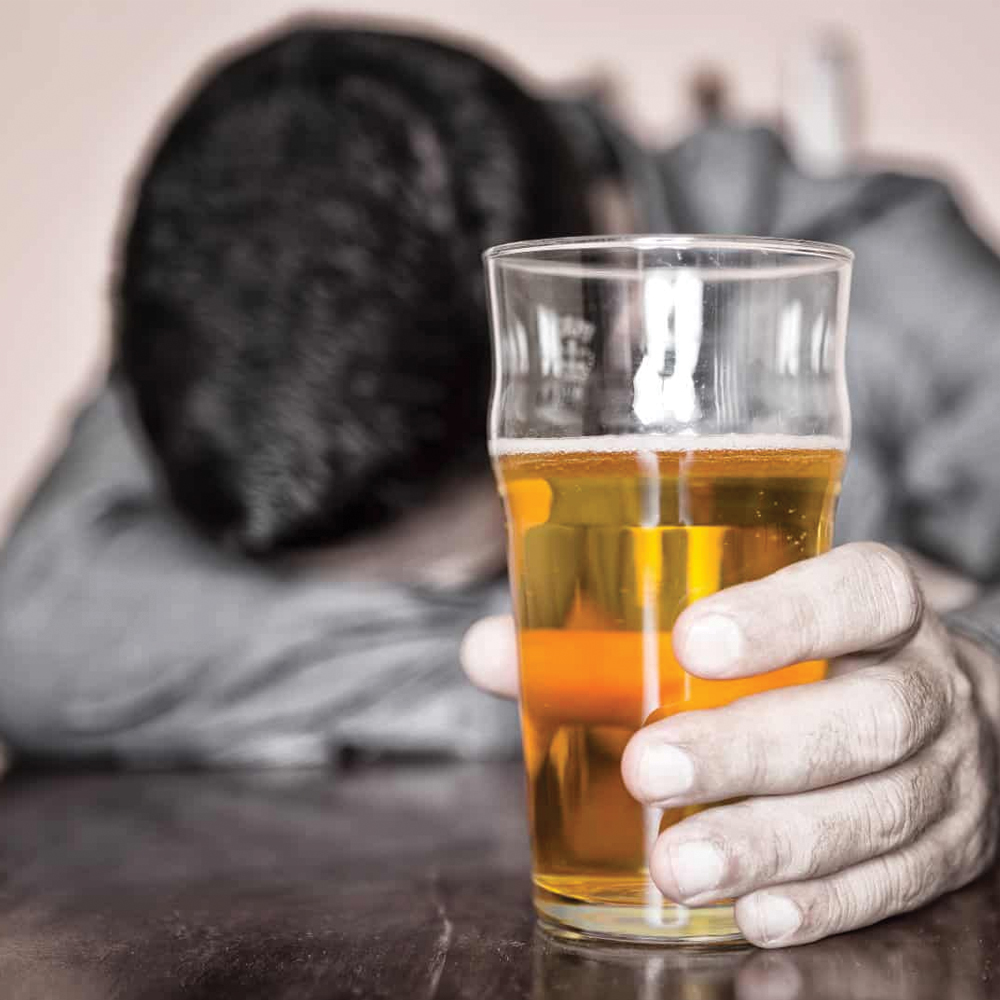Alcohol Addiction
Embrace sobriety through lifestyle changes
First-Time Patient?
Our Laser Therapy program for alcohol addiction boasts an impressive 85% success rate, offering hope and promise to those grappling with addiction worldwide. Our personalized treatment plan begins with a warm consultation, followed by a gentle laser therapy sessions, counseling, and unwavering encouragement. By targeting acupressure points with laser light, we stimulate the release of endorphins, promoting comfort and well-being. Clients emerge from each session refreshed and renewed, moving closer to a future free from addiction, filled with confidence and optimism.
Break Free from Alcohol Addiction
The laser is considered a “soft medical” treatment, it works in the same way as acupuncture but uses a fine-point laser rather than needles. The laser activates neurotransmitters at each touchpoint. The results remove the cravings for alcohol addiction; it also treats the systems, glands, and organs affected by alcohol consumption. As well, our treatment is known to relieve or reduce the alcohol withdrawal symptoms such as stress, anxiety, aggressivity, obsessions, frustrations, etc… This laser treatment for alcohol addiction will stimulate the release of hormones from the brain and will provide a sensation of calm and well being.
Alcohol Addiction: 9 Tips To Help You Stay Sober & Alcohol-Free
1-Stay Out of Risky Situations
This may mean that you don’t spend time with someone you used to use drugs with or go somewhere you used to drink. You might take a new way home from work, for example, to keep from going past your favorite old hangout.
2-Build Yourself A Support Network
Lean on close friends and family for support, even if your relationships aren’t what they used to be. Think about going to counseling or family therapy to help with that and to deal with other personal issues.
Have some sober friends you can invite as your plus-one to a social event like a party or wedding. Stay in touch with your sponsor and call him if you’re feeling anxious or uncomfortable.
3-Find A Peer Support Group
Organizations like Alcoholics Anonymous or Narcotics Anonymous are other ways to build a support network. You can try different meetings for the different groups to find one that’s right for you.
Several smartphone apps offer ways to connect with others who are going through the same things you are. In addition to guidance and support, some of the apps also can help you get immediate help from your network or find a ride to a support group meeting.
4-Manage Your Urges
While most last only 15 to 30 minutes, it can be hard to fight them off. You might try a substitute, like chewing gum or a personal mantra: “I am stronger than this, and it will pass”.
Staying busy is also a great way to distract yourself. And some people find it helpful to keep a journal. Write down the things that bring you joy and things you’re grateful for, then go back and read it during tough times.
5-Find An Activity That Means Something To You
You may want to start an exercise routine — exercise releases brain chemicals called endorphins, which can make you feel good. Or you might rather spend time volunteering for a good cause, like an animal shelter or children’s hospital. Whatever it is, new activities can lead to new friends with interests like yours.
6-Learn To Manage Stress
At some point in your recovery, you’ll feel stressed out, whether it’s major stress (like losing a job) or minor stress (like running late for an appointment). When things like this happen, find a sober friend or loved one you can talk to for support. And keep your schedule loose enough that you have time for group meetings and other things that can help you through rough stretches.
Keeping your body healthy will help your mind stay healthy and positive during recovery. So make time for exercise, eat a balanced diet, and get a healthy amount of sleep.
7-Learn To Relax
When you’re tense, you tend to do what’s familiar. When you’re relaxed, you’re more open to new things. Different strategies work for different people. You might try:
- Yoga
- Meditation
- Reading
- A Nature Walk
- A Massage
- A Bath
- Music
- Breathing Exercises
8-Manage Physical Pain
If you recently had surgery or an injury, your doctor will be careful with the pain medication she gives you, because some of those drugs can make you more likely to relapse. Ask your doctor about nonmedical ways to manage your pain, like massage or acupuncture.
9-Prepare Your Story
Decide what you’ll say if someone asks why you’re sober. You can try to avoid the conversation, but it’s good to have a response ready in case that’s not possible. If the question comes from someone you know well, you may want to say that drugs or alcohol became a problem for you, so you’re staying away from them. If you don’t know the person well, simply saying you have to get up early the next morning or you quit for health reasons should be enough.
Call: 613-878-9412
383 Parkdale Avenue Suite #105
Toll-Free
1-800-418-9415
Free Consultation
Call us now for your free consultation

